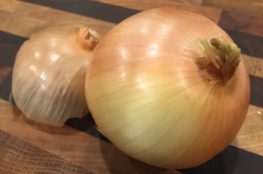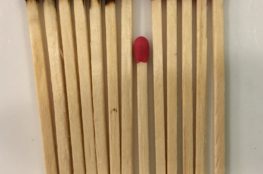My gardener dad taught me many things. One of the most memorable was how bad bindweed is. I mean, it’s like the end of the world. If you get bindweed you will never get rid of it. It will take over and strangle your garden, your flowers, everything. There’s nothing you can do except poison, and you have to keep poisoning it for a long long time.
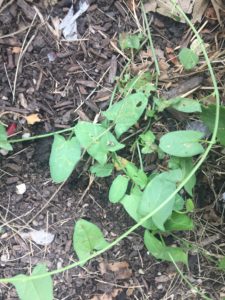
Wow. I could see what it did – take over whole areas he was trying to garden in, filling the bare spots, climbing up the tomatoes and peppers. Yikes!
Years ago, gardening in Central Kansas, I got a load of horse manure compost from my neighbors. I was so happy about the rich bonus and we spread it over the garden.
But by late summer, the first bindweed I’d ever had appeared in my garden. Oh no! It was apparently in the manure – I was freaked. I was gardening organically and had no idea what to do.
Eventually I moved. Problem solved.
Fast forward – years later, gardening in Lee’s Summit, Missouri, bindweed appeared next to our fence. All my fears and memories of bindweed came rushing back. I hoed. I pulled. I asked Stan to do the same.
Still it expanded. It climbed up all our raspberry bushes and strangled them. It crept up the back fence. It wound itself across the grass and into our regular vegetable garden.
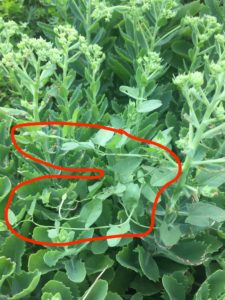
The bindweed exhausted me. I was discouraged and despairing. I didn’t want to move to escape this pestilence.
But I didn’t want to give up my entire garden to the Bindweed Takeover.
In the absence of a remedy, I just kept plugging along. One day I came across a book, called Weeds – Control without Poison (Charles Walters). It’s a weird book and a radical concept for sure. But I read parts of it, including what it said about bindweed.
Come to find out, bindweed is an opportunistic weed, Mother Nature’s clean-up crew, sent in when the soil is poor and or the ground is bare. Suddenly I had childhood memories of barren soil driveways leading into fields – thick with bindweed. I read further.
I learned that certain plants are Nature’s remedial crews, which over a few years, provide the organic matter and processes that impoverished soils need. When their work is complete, they die out and are replaced by other plants which do better in richer soil.
Wow! I thought about this for weeks, replaying garden and weed interactions from my past. Is this true? Then my mind skipped over into Life itself… is there a metaphor here?
After I pondered this concept for several months I convinced Stan to help me make major changes to the garden. We removed the strangled raspberries and replanted some of those roots (carefully cleaned) to a new bed free of bindweed. We put grass – tough grass, thick grass – where the bindweed was the thickest and got it going, then simply mowed regularly. In the garden, where the bindweed had intruded, I vowed to compost and enrich the heck out of the soil, making the bindweed unnecessary and unwelcome.
All this we did. In addition, once the thick field of bindweed roots and plants was no longer flourishing, we rigorously pulled and hoed EVERY SINGLE ONE of the isolated plants that would pop up. Yep, there were a lot. But we removed a lot also. We are still doing it every time we visit the garden, but there’s not a lot to do.
This summer, about 4 years after the major changes, I have an asparagus patch to die for. Lush. Extravagant. Prolific. Spreading. Right where the bindweed used to live. I can barely find any bindweed at all there anymore.
And the rest of the garden is the equally clean. We still have to pull individual plants, but it’s not taking over anything.
What’s the metaphor?
Remember Field of Dreams, “If you build it they will come”?
In the same way, if you un-build something, things will disappear.
When I spent lots of time focusing on how bad the Bindweed Takeover was, I was stressed and discouraged, constantly trying to beat it.
But when I began to understand, appreciating the role bindweed was playing in my garden, and creating a space that didn’t invite bindweed – then it subsided, almost to disappearing.
Yes, I did have to pay attention and root out the single plants popping up. I had to be consistent about that. But, my reward is a rich and sumptuous garden, right where the bindweed used to be. So worth it!
Are we too focused on fighting something that seems huge and overwhelming and monstrous? What if we make an environment where “it” is no longer welcome? What if we join forces, learn and understand, and make “it” outdated and unwelcome?
Yes, we will still have to face and eliminate isolated instances. But we can change the habitat, and the species that found it most inviting will go elsewhere.
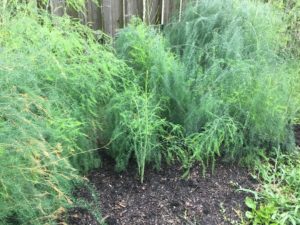
Whether the issue is bindweed, or systemic racism, or corruption in politics, or hate crimes… coming together as humans across all kinds of lines, to create an enriched environment where these things are not welcome, is possible.
Is it easy? No.
Is it simply positive thinking? Absolutely not.
But joining hands, and working together to make fertile ground where all of us (all colors, all religions, all cultures) can thrive is not only possible but actually exciting.
When the ground is fertile for healthy and happy living for all people (all beings actually), then it will be easier to root out the “bindweed” that does show up – the acts of hate or violence – and deal with them, eliminate them.
Do not mistake what I’m suggesting as only positive thinking. There’s much more work involved here, and much more understanding.
We have become accustomed to an impoverished environment where noxious intruders are comfortable. When we create a rich, connected, fertile environment those intruders will fade. And we’ll have the power and clarity to deal with them one at a time.
Thank you, Bindweed, for the valuable lesson.
© Linda Chubbuck 2020

